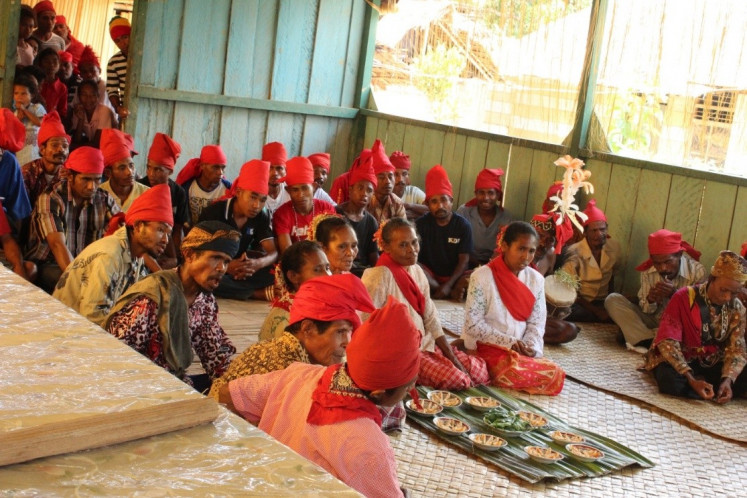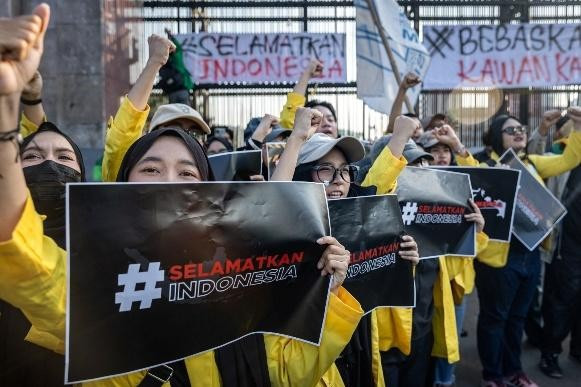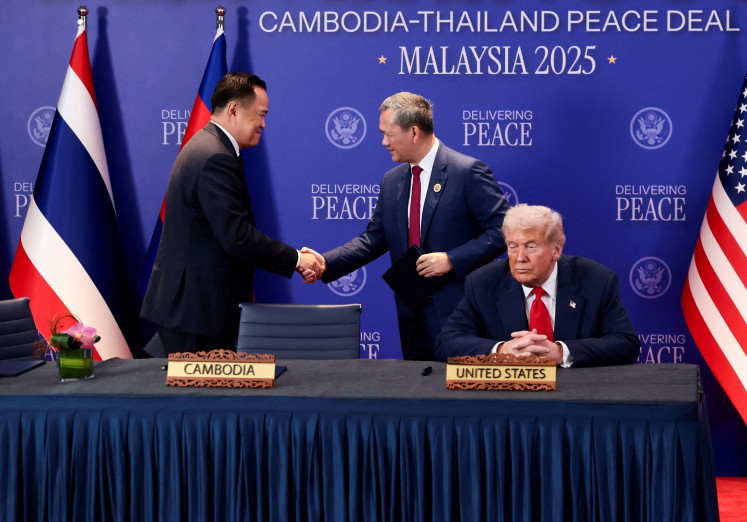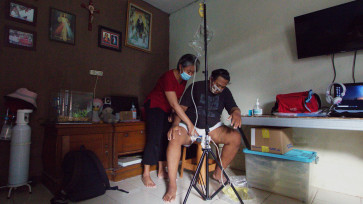Popular Reads
Top Results
Can't find what you're looking for?
View all search resultsPopular Reads
Top Results
Can't find what you're looking for?
View all search resultsPromoting health literacy for better kidney care
Poor knowledge about kidney health means many people do not realize that their kidneys do not work properly and they seek medical help only after their ailment is already at an advanced stage.
Change text size
Gift Premium Articles
to Anyone
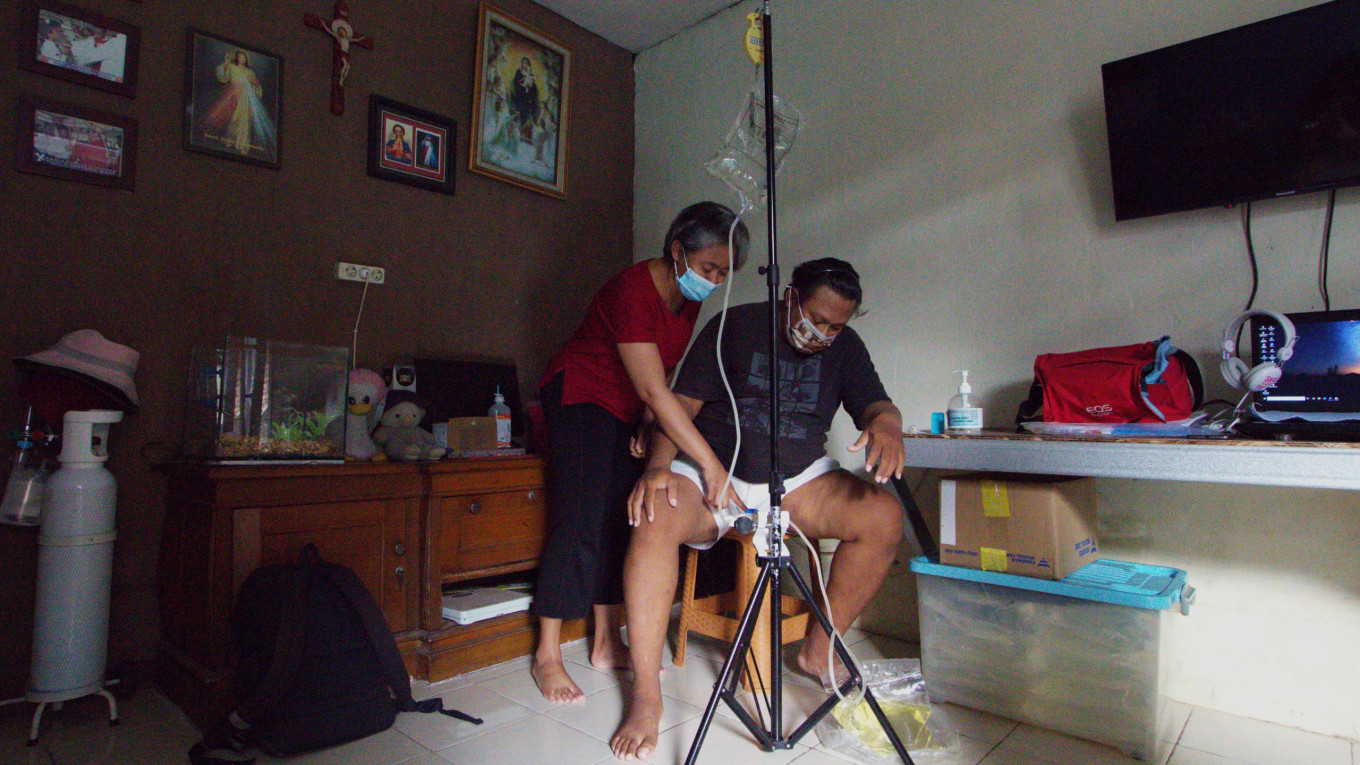 Christina Windarwati dedicates her life to her husband, Stefanus Meilarius, who was
diagnosed with kidney disease in 2020. Every day she assists her husband with setting up a blood-cleansing treatment by injecting fluids through the abdominal cavity, a process called peritoneal dialysis. She does this three to four times a day. (JP/Andaris Dikarina)
Christina Windarwati dedicates her life to her husband, Stefanus Meilarius, who was
diagnosed with kidney disease in 2020. Every day she assists her husband with setting up a blood-cleansing treatment by injecting fluids through the abdominal cavity, a process called peritoneal dialysis. She does this three to four times a day. (JP/Andaris Dikarina)
T
his year’s World Kidney Day, which fell on March 10, was focused on the importance of bridging the information gap to achieve better kidney care. Why is the information gap an important aspect in taking care of our kidneys?
Chronic kidney disease is a global health problem because of its high death and illness rates. Worldwide, the prevalence of this longstanding disease varies across countries, but on average it is about 10 percent. This means one in every 10 people in the world has chronic kidney disease. The problem is, nine out of those 10 people are not aware that they have kidney problems.
Poor knowledge about kidney health means many people do not realize that their kidneys do not work properly and they seek medical help only after their ailment is already at an advanced stage.
In Indonesia, the prevalence of chronic kidney disease continues to increase, now standing at 0.38 percent, up from 0.2 percent in 2013, according to the Basic Health Survey (Riskesdas). The high prevalence of kidney failure has put tremendous burdens not only on patients and their families but also on the government, because the treatment for patients of kidney failure costs a lot.
Imran Agus Nurali, director of health promotion and people empowerment at the Health Ministry, said Indonesia was facing a triple burden of disease: new emerging and reemerging infectious diseases such as COVID-19, unresolved infectious diseases (pneumonia and diarrhea) and the rapid rise in noncommunicable diseases (NCDs).
“While epidemics of infectious diseases are still occurring, we now must address the growing burden of NCDs,” he said during a webinar on March 9 to mark 2022 World Kidney Day.
The webinar, themed “Kidney Health for All: Bridge the Knowledge Gap for Better Kidney Care”, was held jointly by the Health Ministry, the Indonesian Medical Association (IDI), the Indonesian Society of Nephrology (Pernefri), the Health Care and Social Security Agency (BPJS Kesehatan) and the Indonesian Dialysis Patients Community (KPCDI).





